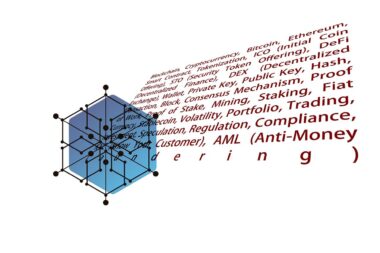Strategies for Businesses to Adapt to Changing Market Regulations
In today’s rapidly evolving business landscape, companies face ever-changing market regulations that can significantly affect their operations. Effective compliance with these regulations is critical for ensuring both long-term success and sustainable growth. Organizations need to develop strategies to assess potential regulatory risks and adjust their policies to meet compliance expectations. By investing in dedicated compliance teams, businesses can better navigate complex regulations and mitigate legal risks. Additionally, they should prioritize open communication with regulatory bodies to stay informed about upcoming changes. This proactive approach fosters a culture of accountability and responsiveness within organizations. Furthermore, businesses must educate their employees on the implications of regulations, ensuring they understand the importance of compliance. Training programs can be designed to update staff on recent changes, thus minimizing the risk of violations. Developing an agile operational framework is equally essential in adapting to regulatory shifts. A flexible operational strategy enables firms to adjust easily to new regulations, allowing for smoother transitions. Overall, investing time and resources in compliance strategies will pay dividends through enhanced reputation and trust with stakeholders, including customers, investors, and regulatory authorities.
Moreover, businesses should leverage technology to streamline compliance processes. Implementing advanced software solutions can greatly enhance the monitoring and reporting of compliance-related data. Automation tools can help organizations track regulatory changes and assess their implications in real time. These technologies minimize the chances of human error while enhancing the precision of compliance efforts. Furthermore, real-time data analytics can provide valuable insights into compliance performance, empowering decision-makers to make informed choices quickly. Companies may also benefit from employing external consultants with expertise in navigating complex regulatory environments. These professionals can offer tailored solutions that address specific compliance challenges faced by the business. Regular assessments of compliance practices should be conducted to identify areas for improvement. Such evaluations ensure that organizations remain adaptable to changes in regulations and sufficiently prepared for audits. Collaborative approaches are also crucial when dealing with regulatory matters. Building partnerships with industry peers can facilitate the sharing of best practices and provide opportunities for joint advocacy efforts. It allows businesses to combine their resources and influence regulatory dialogue effectively. In conclusion, a comprehensive approach to compliance will foster resilience and adaptability amidst evolving market regulations.
Engaging Stakeholders for Better Compliance
Engaging stakeholders plays a vital role in formulating effective strategies for adapting to market regulations. By involving key stakeholders in the compliance process, businesses can benefit from diverse perspectives and insights that shape overall strategies. This includes consulting employees, customers, suppliers, and investors to gather their input on how regulations might impact their interests. Leveraging feedback from stakeholders encourages a sense of ownership and accountability among all involved. In addition, establishing open communication channels ensures that stakeholders are well-informed about regulatory changes, potential impacts, and compliance initiatives. Having a transparent system fosters trust, which is crucial in maintaining strong relationships with stakeholders. Furthermore, businesses should create collaborative opportunities for stakeholders to participate in compliance training programs. This engagement equips them with the necessary knowledge and skills to navigate regulations effectively. Companies can also conduct stakeholder forums or workshops to discuss regulatory challenges and brainstorm collective solutions. Peers within the industry can provide insights into compliance methodologies that have yielded success. Ultimately, a robust stakeholder engagement strategy can facilitate stronger compliance outcomes and generate better alignment with regulatory requirements over time.
Another technique for effectively dealing with changing market regulations is through scenario planning. Scenario planning helps businesses to envision potential regulatory changes and their impacts on operations. By anticipating various outcomes, companies can devise multiple strategies to tackle regulatory challenges proactively. This approach allows organizations to remain ahead of potential obstacles and ensures they are prepared to adapt swiftly. Regularly updating these scenarios enhances their relevance, ensuring that strategies remain aligned with current market conditions. Companies could also develop risk assessment frameworks to identify specific vulnerabilities within their operations related to compliance. This process allows firms to prioritize actions based on their most pressing risks. Engaging cross-functional teams in this effort will provide a comprehensive view of compliance challenges and facilitate a holistic response to managing risks. Additionally, organizations can harness the power of industry associations to stay informed about regulatory developments. Participating in such associations offers access to valuable resources, networking opportunities, and collaborative advocacy efforts. Leveraging such resources can relieve some burdens associated with compliance management while promoting a collective approach to tackle shared regulatory challenges. Overall, proactive planning equips businesses with the necessary tools to thrive in regulated markets.
The Importance of Monitoring Regulatory Changes
Consistent monitoring of regulatory changes is crucial for any business operating in dynamic markets. Regulations can shift swiftly due to political, social, and economic factors, making it essential for firms to stay alert to these changes. Companies must adopt systematic approaches for tracking relevant updates that could impact their compliance obligations. Subscribing to regulatory alerts or participating in webinars hosted by regulatory bodies helps organizations stay informed about developments. Assigning dedicated staff responsibilities for monitoring regulatory changes provides an added layer of oversight and accountability. Utilizing regulatory technology (RegTech) tools can also enhance the effectiveness of these monitoring efforts. These platforms enable businesses to aggregate and analyze compliance data, providing insights into trends and potential areas of concern. Moreover, involving senior leadership in discussions around regulatory changes ensures that compliance is prioritized at the highest levels of the organization. Regular communication with compliance teams will facilitate strategic discussions about adapting policies and procedures as needed. Overall, prioritizing regular monitoring empowers organizations to respond effectively to new regulations, minimizing risks and vulnerabilities associated with potential non-compliance.
Additionally, the role of documentation cannot be understated when adapting to evolving regulations. Accurate documentation not only ensures compliance but also serves as a foundation for audit trails. Organizations should maintain meticulous records related to compliance processes, policies, and any engagements with regulatory bodies. This level of documentation provides evidence of the organization’s commitment to compliance and enhances its credibility. In instances where regulations change, having a well-organized documentation system makes it easier for firms to identify necessary adjustments swiftly. Businesses should implement standardized documentation procedures to ensure consistency across all departments. Regular training on documentation practices will enhance employees’ understanding of their responsibilities in maintaining compliance. Furthermore, retaining expert legal counsel can aid businesses in interpreting complex regulations and ensuring documentation aligns with legal requirements. Involving legal advisors during the drafting of documents provides assurance that compliance obligations are met and helps to avoid future disputes. Together, these strategies prompt organizations to be proactive in compliance and strengthen their reputation within the marketplace. This enhanced reputation ultimately contributes to building trust with customers and stakeholders.
Fostering a Compliance Culture
Creating a strong compliance culture within an organization is essential for effectively adapting to market regulations. When employees understand the importance of compliance, they are more likely to incorporate it into their daily activities. Firm leadership should demonstrate a commitment to compliance by setting clear expectations, values, and accountability measures within the organization. Open discussions about compliance issues should be encouraged, allowing employees to express concerns and seek advice without fear of repercussions. Moreover, recognizing and rewarding compliance efforts can reinforce positive behaviors among staff. Regular compliance communications and reminders can help keep these expectations top-of-mind for employees. By integrating compliance objectives into performance evaluations, organizations naturally prioritize adherence to regulations across all levels. Furthermore, utilizing storytelling techniques to share compliance success stories can inspire employees and contextualize the significance of their efforts. Developing peer-to-peer mentorship programs can also facilitate knowledge sharing among employees regarding compliance best practices. Fostering a strong compliance culture not only results in improved adherence to regulatory standards but also reflects a proactive and responsible approach to business practices. This constructive environment ultimately enhances the overall effectiveness of compliance initiatives.
Lastly, businesses must remain adaptable in their overall operational strategies when faced with regulatory changes. An adaptable business model ensures that companies can pivot operations seamlessly in response to new regulations. This flexibility allows organizations to explore innovative solutions while remaining compliant with evolving requirements. As different regulations may require adjustments in various departments, cross-training employees can enhance collaboration and responsiveness. Equipping staff with diverse skills enables them to navigate changes more effectively and alleviates the burden during regulatory updates. Regular reviews of operational processes should be conducted to identify potential bottlenecks that could impede compliance. Moreover, utilizing feedback mechanisms will help organizations identify challenges faced on the ground and create comprehensive solutions. Drawing from insights gained from internal audits can enhance compliance accuracy and operational quality. Collaborative input from various departments fosters a holistic understanding of the implications of regulatory changes. In embracing adaptability, organizations are empowered to thrive even amidst uncertainty. This approach cultivates a resilient business that remains committed to compliance, ultimately reinforcing stakeholder trust and enhancing overall industry reputation. With these strategic possibilities in place, businesses will be more equipped to succeed.








